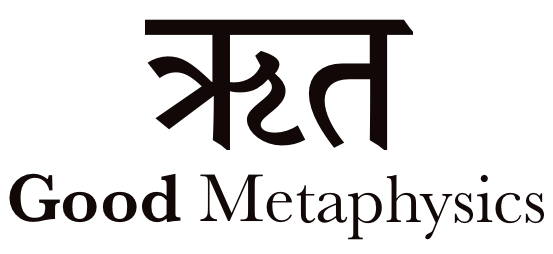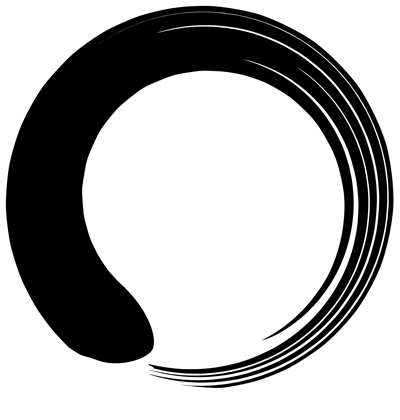The "Right-Wing Populist" Grift
An attack on true Populism and the Intellectual & Dynamic Morality it represents.
I've been thinking lately about how fixating on “left” versus “right” is doing us all a disservice. These labels split us up on a huge number of issues where we agree on far more than we're traditionally told.
Overusing these labels turns politics into a team game. Elites and the media love to propagate the team games, often reducing things to cartoonish caricatures of “left” and “right.” While real talk about what truly matters, what is truly valuable for a nation or the world gets tossed aside. Suddenly it’s all about cheering for your team - a social construct - no matter what you actually believe or what the values at play truly are. Instead of genuine debate or discussing what's truly valuable, it becomes a game of shouting extreme political stereotypes at your opponents and claiming victory. Values and truth be damned!
This would be entirely depressing if it were the only way forward. But there is another view of politics, more pragmatic and less focused on ideals. More focused on what's truly valuable and what can actually be achieved. Populism it's called. Populism, a term created by farmers and common folks tired of being exploited by elites in the late 19th Century. Populism isn't about political calculations or manipulation. It's not about left or right, but instead it's a pragmatic viewpoint focused on finding what most common folks intellectually agree is best, and doing that.
Unfortunately, in today’s global political climate, where socially powerful elites dominate the conversation, finding that common ground or what folks think outside of elites is rare. This isn’t an accident. Stagnation and division serves the socially powerful as it ensures their rule is never challenged. In fact elites have also created and fostered the caricatures of either side of politics ensuring that a true intellectual renaissance of common man populism can never occur.
Currently, the left sees itself as aligned with 'The Intellectuals' - elite academics and experts who claim to have a monopoly on truth. This fuels their moral superiority, allowing them to feel justified in dismissing not only figures like Trump but importantly, his supporters anti-elitist values too. In response, the right has framed itself as the challenger to this kind of elitism, taking on these elites who have at times made disastrous decisions in their own favor at the expense of the common man. But in doing so, figures like Trump have fueled a culture of conspiracy and anti-intellectualism in response, tapping into deep frustrations with the establishment.
The current political system then, while elite controlled, keeps us divided, so that we never come together and intellectually discover and act on our shared values. In line with this; at every turn since Populism's inception - the powerful on the social level have successfully sought to keep the general populations understanding of what exactly it is - blurred and confused. Just about every caricature known of the populists now is the opposite of what it was.
Racist? They occasionally fought and died along side their fellow blacks for their equal rights
Sexist? They had women in lead roles.
Anti-Intellectual Unthinking Mob? They often celebrated intellectual achievements and started as a movement using books and intellectual discussion to determine why they were getting screwed.
Authoritarian? They mostly made decisions as a collective and never really had any strong-man type leaders.
Thomas Frank writes about this campaign of the populists and their anti-populist elite opposition in his excellent book titled 'The People, NO'. Without knowing about this superior alternative though, folks can be and have been easily manipulated.
Enter Steve Bannon. Unlike Trump who all too often does and says things to contradict his 'populist' label (and is never called out for them by an uncaring elite media) his former political advisor Steve, in some ways, makes a stronger case to be labelled a populist. For example in a recent interview(above) he calls himself a 'neo-brandeisian'. This tag is in reference to the original populist lawyer named Louis Brandeis who is quoted as famously saying:
We may have democracy, or we may have wealth concentrated in the hands of a few, but we cannot have both.
And
“Sunshine is the best disinfectant.”
In the video above Bannon also speaks highly of former FTC chair Lina Khan who was one of the only few bright spots in a relatively lackluster Biden administration.
Finally, like the original populists, Bannon has argued that elites care little for international borders or the rule of law and undermine local workers by importing cheap labor from overseas. Importing cheap labor, neglecting rights and hurting not just the immigrants but the common folk is an immoral placing of social level power above the Human Rights of the workers. Indeed, Bannon takes this critique further and also notes that by undermining a culture through mass immigration, elites are able to undermine a sense of national identity fostering chaos and enabling further exploitation.
If this was all there was to Steve Bannon's "populism" then, that would be the end of it, we could rightly call him a populist and go home. Except unfortunately it isn't.
Nathan J. Robinson recently on Twitter points out some of the issue with his "populism". In the same way the Democrats latest elite supporting chair argues that there are 'Good and Bad Billionaires' - so too does Bannon. In his arguments for Trump and Musk, Bannon makes dubious claims as to why these Billionaires he deems as good, are at least somewhat immune from corruption:
'Trump doesn't have an elitist mentality' Bannon argues 'because he is a self made Billionaire'. 'Trump isn't an elitist.. he's an outsider'. After some thin prodding Bannon's arguments become even less strong when asked about Trump's elite Billionaire supporters: 'All of Trumps billionaire friends aren't elites, they support Trump!'.
Well, I'm not celebrating Steve Bannon being "right about the oligarchs" because he thinks that if you're from Queens you're not an oligarch pic.twitter.com/MNU52WUGfZ
— Nathan J Robinson (@NathanJRobinson) February 7, 2025
So with Bannon's rose colored glasses, he believes that simply because Trump is self-made(he isn't) he will always have the nations best interests at heart(he doesn't). It takes very little scrutiny of Trump's actions, and especially of Musk's recent actions to see they clearly do not have the nations best interests at heart.
To point out an easy one - look at their (currently underway) dismantling of the Consumer Financial Protection Bureau. This Department costs 1 Billion dollars a year and has done far more good in protecting consumers against powerful elite run corporations than just about anything else. It's returned over 20 Billion to consumers through law enforcement over the last 10 years and protected Americans from further exploitation. Exploitation such as Facebook's recent attempt at becoming its own bank and creating money for itself and becoming an even greater undemocratic power in America and the world.
With this in mind then, it's somewhat of an irony that in 'religious' America the sins of greed, lust and power can be so easily dismissed by the likes of Bannon. The idea that if someone is rich enough or they are 'self-made', they no longer lust for more and will always have others best interests at heart is simply asinine. For the great majority of Billionaire's accumulated their wealth at least partly because they lusted for further power and their greed knew few bounds.
This understanding though is best summed up through the language of the Metaphysics of Quality(MOQ). Because those who understand the MOQ, understand that the conflict between social values and intellectual values is still ongoing. And at this moment, it's most profoundly being undermined with the aid of an amoral metaphysics at the hands of the socially powerful like Bannon, Trump and Musk.
Bannon has done more than anyone before him to muddy the waters between populism and elitism. By rolling out the red carpet for elites in his so-called “right-wing populist” movement and hyping up figures like Musk, he’s made it clear—this isn’t real populism. It’s a sham, a vehicle for grift, deception, and the erosion of anything truly valuable. Rather than being a movement about widespread intellectual enlightenment and a celebration of intellectual values - it's encouraged conspiracy and limited critical thought.
Like past anti-populists, Bannon has warped the meaning of the term, giving the elite media even more ammo to do the same. The result? The powerful have successfully misled everyday people about what genuine populism is—and what real change could look like.
When we begin to look at the reasons why Bannon might be deceptive in undermining the intellectual value of populism in this way there are a few that can be given.
- He can fundraise off true populist outrage.
- He can keep framing himself as an outsider despite having wealthy backers like the Billionaire Mercers.
- He actually prefers social level strong-man authoritarians rather than true populist common-man movements as evidenced by his working with 'soft' dictator Viktor Orban, and praise of Chinese Communist leader Xi Jinping.
Notably each of these reasons is about social level power. Either increasing his own, or admiring that of others. This is the opposite of what the populists were fighting for. Valuing social level power at the neglect of the intellectual value of fairness and the Dynamic Morality that can arise from that equal opportunity is wholly immoral.
There is far too much extreme inequality in America right now. Social level power drowning out the people in being able to choose what is intellectually right is immoral. There is a better way and the MOQ eloquently shows it to us.






